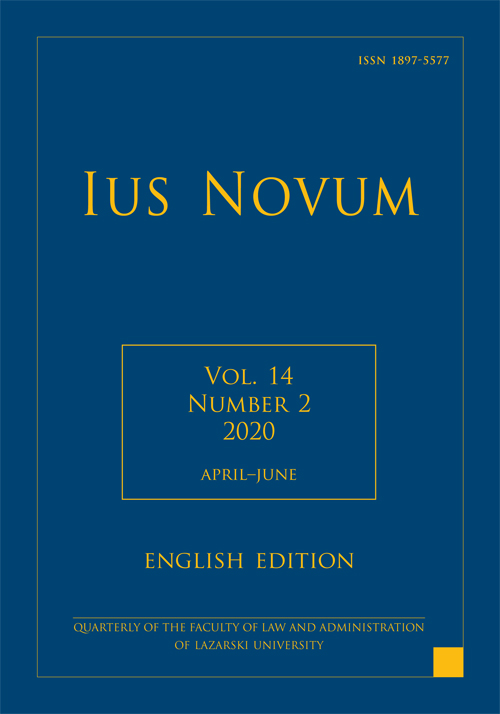Abstract
The article discusses amendments to the General part of the Criminal Code passed on 13 June 2019, concerning penalties laid down by statute and determined by court. In particular, the author analyses the issue of seemingly directive-like changes concerning the imposition of a fine and the penalty of limitation of liberty in the case those penalties co-occur with the penalty of deprivation of liberty, which in fact increase the minimum limits of those penalties for many offences in the field of the whole common and military criminal law. The author examines the provisions added to Article 33 CC: §§ 1a and 2a, and to Article 34 CC: § 1aa, in the context of the nulla poena sine lege certa principle, the principle of individualised sentencing and the principle of a court’s discretion in the process of imposing a penalty or other penal measures. The author also assesses the purposefulness of the introduction of the catalogue of aggravating and extenuating circumstances to the Criminal Code (Article 53 §§ 2a and 2b CC added). She mainly draws attention to difficulties that can occur in a court’s assessment to what extent the occurrence of given extenuating circumstances justifies taking them into account within standard sentencing and when it will give grounds for the application of the institution of extraordinary extenuation of a sentence. The article also presents the amendments to the wording of Article 53 § 1 CC within the scope of general directives on a penalty determined by court, which mainly tend to direct sentencing towards revenge for an offence committed and general prevention. Taking into account individual prevention was pushed to the background, and the objective of preventing a convict from returning to crime was narrowed, while striving to achieve educational objectives in the field of a convict’s attitudes and conduct was totally ignored. The article is strongly critical of the amendments passed. That is why, it is expected they will not enter into force.
